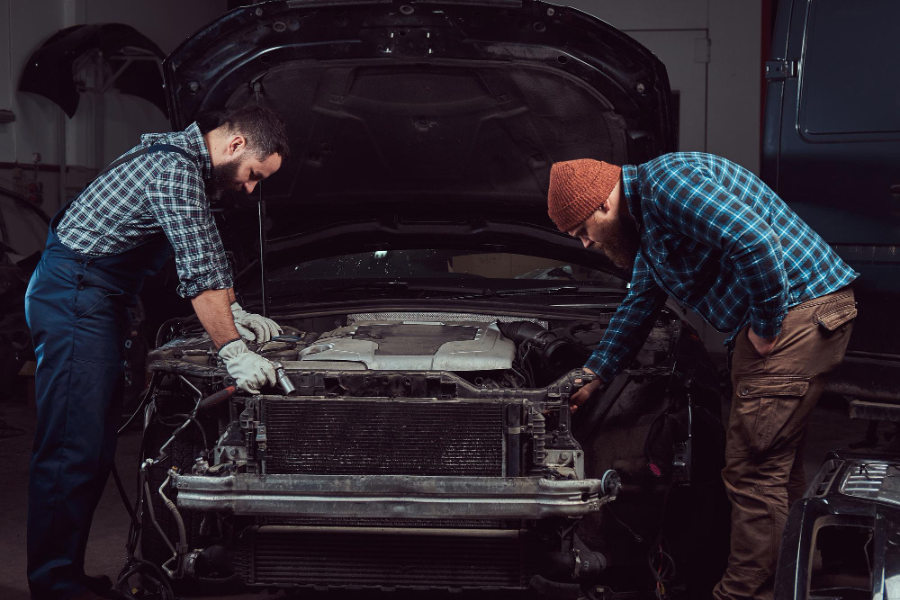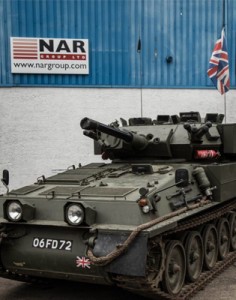Owning a classic car is more than just a hobby; it’s a love affair that commits us to preserving a piece of automotive history. Maintaining classic vehicles, however, requires extra care and attention to ensure they run smoothly for years to come. Whether you’re a seasoned collector or a new enthusiast, these classic car maintenance tips will help you keep your prized possessions in top condition and eminently presentable. And with NAR Group’s expertise in all things automotive, you’re never far away from professional advice, or the right parts, to keep your classic car running smoothly.
-
Use the Correct Type of Fuel
Classic cars were created in an era when fuel requirements and formulas were much different than what you’ll find at petrol stations today. So it’s very important that you make sure to use the correct fuel for your car’s engine. In many cases, this means opting for ethanol-free petrol to prevent the deterioration of rubber components in older engines. If you’re not sure which fuel will be best for your classic car engine you can always consult with the owner’s manual or a classic car specialist to find out.
-
Pick the Right Oil for the Job
When it comes to oil, your classic car wants a little extra attention to provide it with the oil that works best with the engine. Many older engines rely on oils with higher levels of zinc additives (ZDDP) to protect key components like the camshaft. Using the wrong oil can lead to increased wear and tear of your engine’s internal components, so make sure you stick to the oil grade that is best for your engine.
If you are unsure of the best oil type for your car you can check with the owner’s manual as it will specify the car’s recommended oil type and the particular viscosity that your car’s engine requires. If you are unsure and have no access to the manual then reaching out to a classic car specialist can alleviate your worries and have you filling your car with the right type of oil in no time.
-
Keep an Eye on the Brakes
Brakes are one of the most important components of any car but in classic cars, they deserve extra attention. Since older cars do not have the advanced braking systems we take for granted today, it’s crucial to regularly check brake pads, discs, and fuel levels to catch any issues early on and ensure your car remains safe on the road for yourself, and other road users.
-
Check All Your Fluid Levels
The fluids in your car are its lifeblood, so it’s essential that each one of them is topped up and clean to ensure proper working of essential systems. Be sure to check your oil, coolant, brake fluid, and transmission fluid, regularly to ensure you are maintaining the correct levels of each. If your car sits unused for a period of time fluid levels can drop, or old fluids can start to chemically break down, leading to overheating and even engine failure. Staying on top of these fluid levels and checking regularly can help avoid expensive repairs and breakdowns further down the road.
-
Listen to Your Car – Pay Attention to Smells
Classic cars have their own voice, and they love to talk to you, though each does it in their own way. If you notice any strange smells whilst driving or parked then don’t ignore them, they could indicate where a problem lies with your classic motor. The scent of burning oil or leaked petrol can be the first sign that something isn’t quite right and catching these issues early can save you a lot of hassle in the long run.
-
Don’t Forget the Tyres
Even if your classic car isn’t driven regularly the rubber in your tyres can break down over time becoming more brittle and susceptible to cracking. Check for cracks, bulges and uneven wear on the sidewalls and tyre tread and if anything looks off, it is time to replace them. Proper tyre pressure is also key to ensuring a smooth ride and can even affect fuel consumption, so checking your tyre pressure regularly and adjusting as needed can help keep your classic car in tip-top shape.
-
Keep Your Battery Charged
Even modern cars can lose some juice when they’re left idle for too long, and with classic cars, the issue is even more pressing. The solution to this is to use a trickle charger which you can hook up whilst your car is parked for extended periods and help you avoid the frustration of trying to start your classic car with a dead battery. Also, don’t forget to check the battery terminals for corrosion and clean them when necessary.
-
Stay on Top of Rust and Corrosion
Rust is the enemy of every classic car owner but with the help of regular inspections, you can work to keep it at bay. Check the undercarriage, the wheel arches and other exposed metal areas for any signs of rust, corrosion, or damage to exterior coatings. If you catch it early on you can treat it before it spreads and can help to reduce the risk by using a rust inhibitor on vulnerable spots.
-
Don’t Forget to Drive it!
This is one of the easiest, most essential, and certainly most fun maintenance tips we have today: drive your car! Regular use ensures the lubrication is constantly moving through the engine, other fluids don’t stagnate and begin to break down or corrode and helps to make sure all of the mechanical parts are working as they should. Even a short drive every few weeks can make all the difference in how well your classic car runs over time and how long it can keep providing its immaculate fun and beauty you have come to love so much.
Conclusion
Owning a classic car means taking on a little more responsibility but the reward is well worth it. By using the right fuels and oil, checking your brakes and fluid levels, seeking out rust and driving your car regularly you’ll ensure that your classic car remains a joy to drive for years to come.
If you need more classic car maintenance tips or high-quality parts then NAR Group is here to help you keep your piece of automotive history in as good as new condition with all the expert knowledge, support and state-of-the-art facilities you need.





